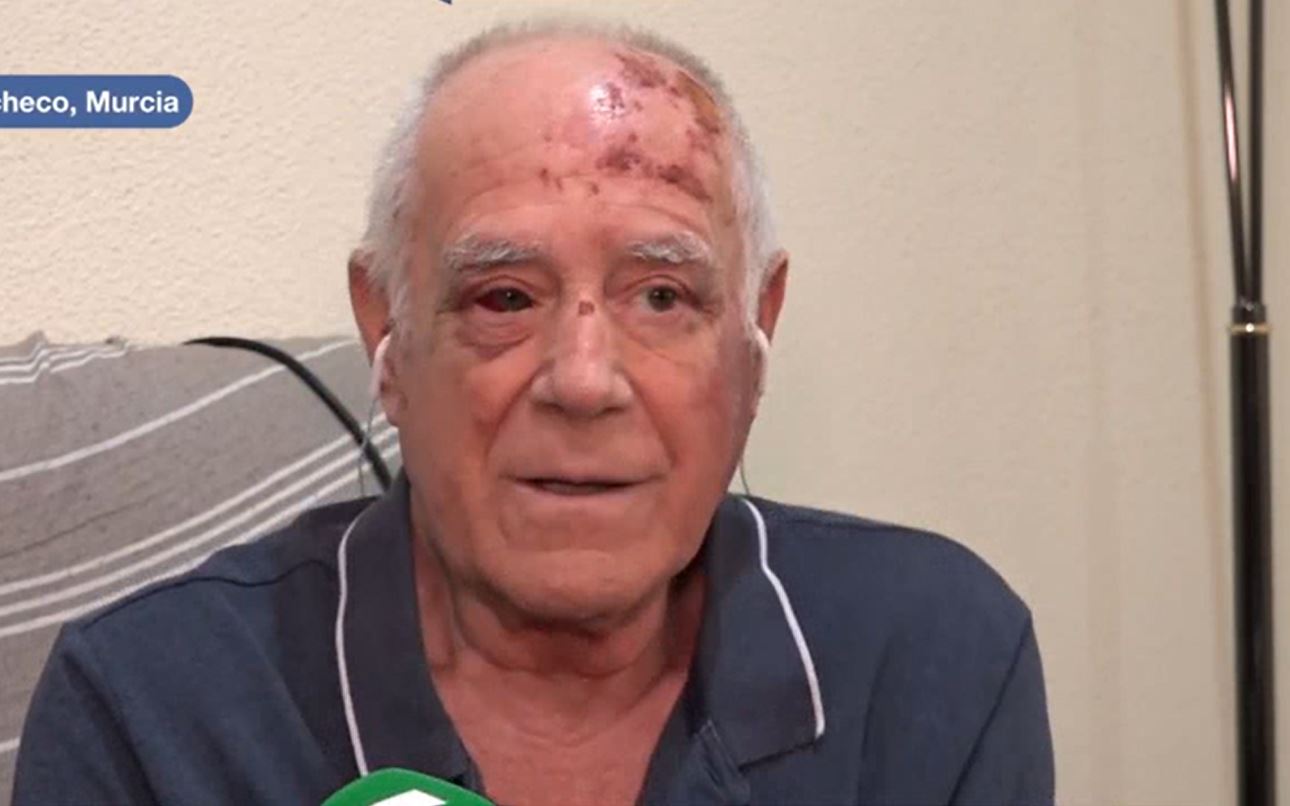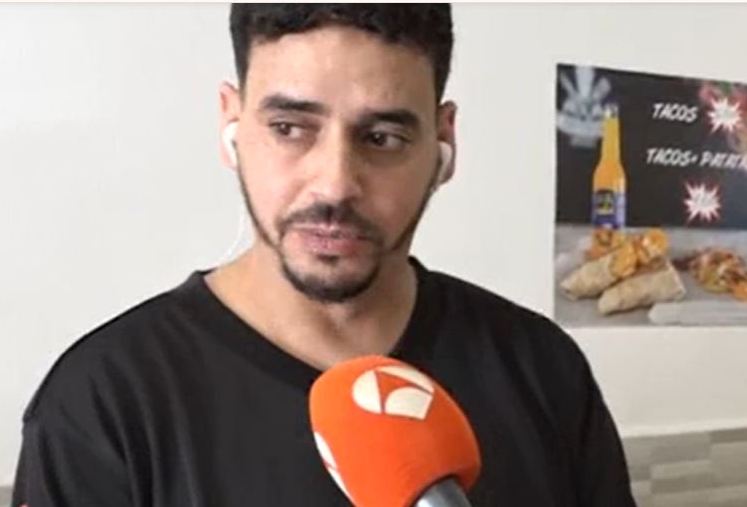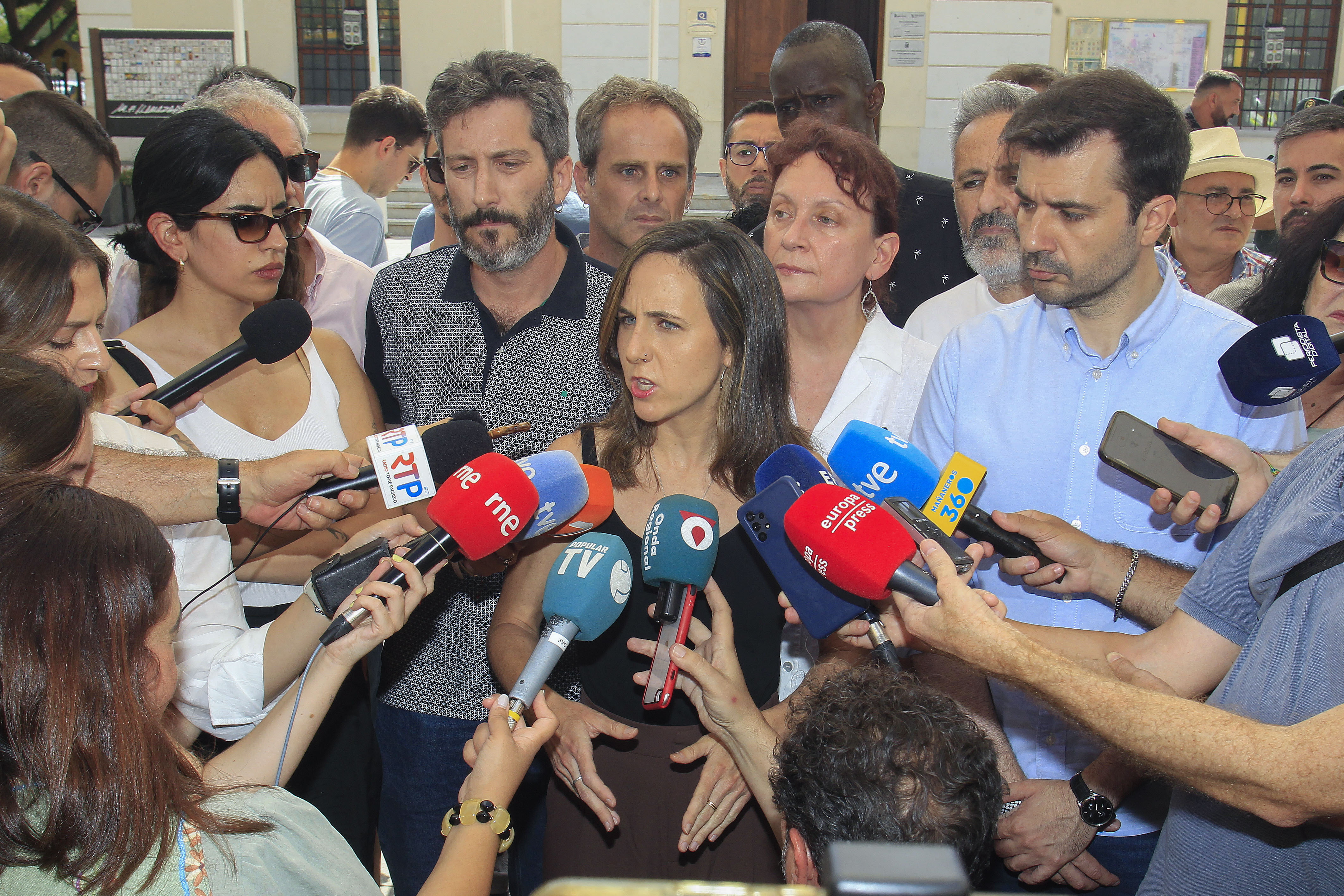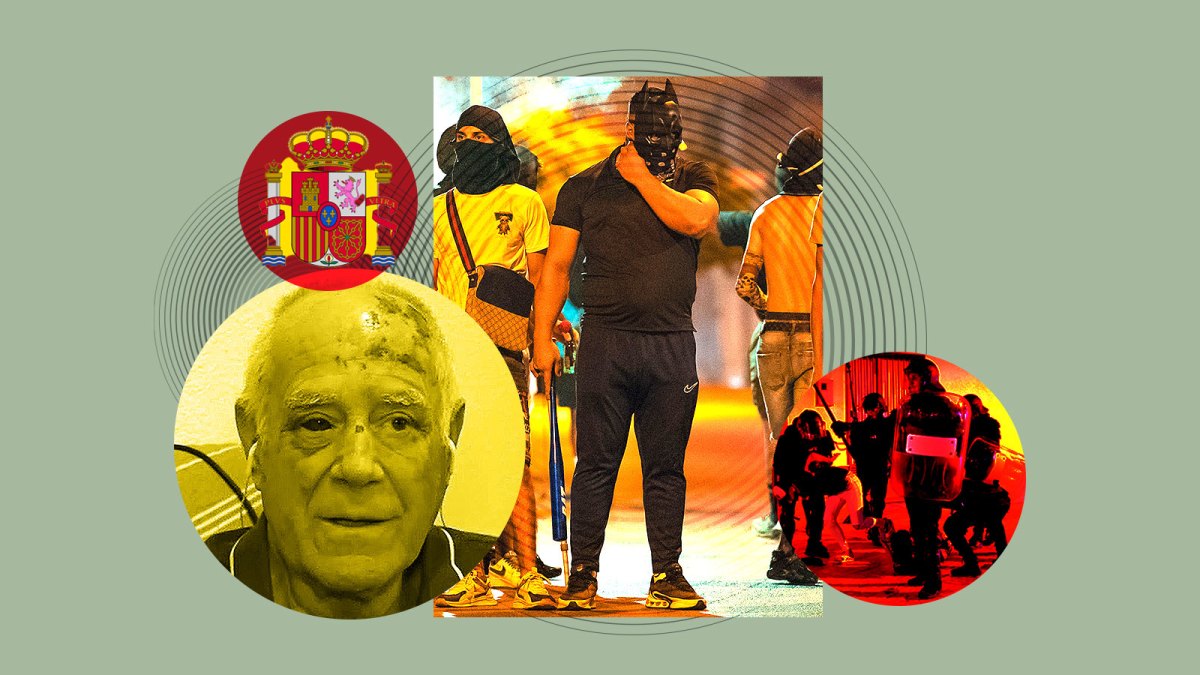The windows of Don Kebab are cracked, its shutters drawn up and its owner, Hassan, remains in shock.
The first warning of the attack against his fast-food restaurant was the arrival, just before midnight on Sunday, of 30 men — hooded, helmeted and armed with sticks and baseball bats.
“They shouted ‘Moor, close up! Don’t work today!’” Hassan said. “Then they sprayed pepper spray. We couldn’t breathe.”
“They wanted to kill us,” Hassan said. “We escaped through the back door with our customers just before they destroyed everything.”
The attack was one of a series of acts of aggression against Moroccans in Torre Pacheco that have converted the small agricultural town in Murcia, southeastern Spain, into a flashpoint for the country’s tensions over migration.
‘He hit me for fun’
The violence, led by far-right groups from outside the town, followed an assault on Domingo Tomas, a 68-year-old Spaniard, on July 9.
Tomas was taking his usual early morning walk, in the cemetery garden near his house on Torre Pacheco’s outskirts, when he came across two young people of Maghrebi origin. A third ran at him and hit him, knocking him down before beating him again, he said.
“I didn’t understand what they were saying as it was in another language. I didn’t say anything to provoke them,” he told El Español. “I had my watch and house keys with me, and that young man didn’t even take the watch — he just hit me to hurt me. He hit me for fun.”
Public anger mounted after a photograph of his bruised face and a video falsely claiming to show the attack were posted online.

Domingo Tomas’s injuries were well publicised
A group named “Deport Them Now” posted a message on social media calling for attacks against people of north African origin. Its leader was later arrested.
Three nights of violence
The conservative-run town council called a peaceful gathering on July 11 to condemn the assault, but it turned violent as far-right groups and locals attacked youths of Maghrebi origin, whom Spanish residents described as “provocative”. Three nights of violence followed.

Clashes with police on July 14
VIOLETE SANTOS MOURA/REUTERS


VIOLETA SANTOS MOURA/REUTERS
Clashes mainly took place in the town’s Moroccan-majority neighbourhood of San Antonio, where Spanish groups went to confront residents. Outside Cafeteria Estambul, near where dozens of police were stationed to prevent further violence, Abdel Hamed, 27, a worker in another kebab shop, said that young Moroccans had “felt attacked and needed to defend themselves”.
Contributing to the violence, he said, was the fact that “groups of gitanos [gypsies] had joined in the fight against us, trying to prove they are Spanish”.
A sense of shock
On Monday the police arrested three Moroccan citizens from outside the town who are suspected of involvement in the attack on Tomas. Two of the suspects are in their early twenties. The alleged main perpetrator, who is 19 and was granted a residency permit in Barcelona, was detained in northern Spain while attempting to flee to France. He has a history of theft and robbery with violence, El Confidencial reported.
Hassan, the kebab restaurant owner, said that if the suspect were “my brother I would personally beat him for all the trouble he has caused. He must face the law.” He added: “I cannot believe that locals would have attacked my shop, it was outsiders … but it has left me uncertain if it will happen again.”

Hassan said the attack left him fearing for his life
Many others in Torre Pacheco share his sense of shock. The town, previously unknown to most Spaniards, has suddenly become a byword for anti-migrant sentiment. The incidents have fuelled a national debate in a country that until recently believed itself immune to tensions over immigration in other European countries.
The divisions were on display on Tuesday evening in Torre Pacheco when a few dozen locals gathered again in the central square to listen to right-wing rabble-rousers from elsewhere in Spain. Police had prevented a bigger demonstration.
“Torre Pacheco is not racist. We have lived for 40 years with immigration. There is no problem with that,” said Carmen Muñuera, 55, a clothes shop owner. “The problem is that there is now a small group of young Moroccans who are bad people and do things like gratuitously beat old people.
“It has been increasing in recent years. The state does nothing. You can’t bring Moroccans here and drop them in the street with no work.”

Ione Belarra, leader of the left-wing Podemos party, visited Torre Pacheco this week and condemned a “racist hunt”
EPA
Muñuera, who has previously voted for parties ranging from left-wing to conservative, said she did not support the populist right-wing Vox party, which the Socialist-led government has blamed for the violence due to its anti-immigrant rhetoric. Vox has blamed the unrest on “illegal immigration”, and its leader, Santiago Abascal, has called for “immediate deportations” in response to what he describes as a “criminal migrant invasion”.
‘I thought we’d be famous for melons — not this’
Torre Pacheco reflects Spain’s rapidly rising immigrant population, a crucial component of the country’s bouyant economy. With a town population of 20,000 — and the same number again in the wider municipality — it lies in the “vegetable garden of Europe”, supplying produce such as melons and lettuce to Britain, one of its key markets.

Moroccan workers at a melon farm outside Torre Pacheco
MARCIAL GUILLEN/EPA
The town’s population has doubled in the past 30 years, and about a third of residents are foreign. Of this group, half are Moroccan. The area’s lucrative agricultural sector depends almost entirely on foreign labour. In 1998, there were 637,000 foreigners in Spain — about 1.6 per cent of the population, compared to 6.95 million today, or 14 per cent of the total. Moroccans number about 920,000 and are the largest foreign community.
The government, which aims to regularise up to 300,000 undocumented migrants per year through to 2027, argues immigration helps offset population decline and fill gaps in the labour market. Analysts suggest Spain’s growing Latin American immigrant population has assimilated better due to a shared language and culture.
Pedro Ángel Roca, Torre Pacheco’s conservative mayor, said the “increase of population had brought an increase in crime, like mobile phone robbery”. He added: “The nationality of the culprits is not important. We have to focus on security. We need more police.”
Roca lamented the misfortune that had befallen his town, saying it was a “peaceful, bustling agricultural town where Moroccans work in the town hall and some have become prosperous in their own businesses”. He added: “Nobody expected this. I had hoped we would be famous for melons, not this.”
“There is coexistence, but not integration due to the lack of public policies,” said Paulino Ros, who is from the town and a sociology professor at the National University of Distance Education in nearby Cartagena.

Demonstrators call for “Spain, honour and glory” at a protest in the town on Tuesday
VIOLETA SANTOS MOURA/REUTERS
At Tuesday’s gathering a handful of men sporting nationalist tattoos stood guard, a couple of people waved Spanish flags and right-wing demagogues urged the town not to be silent to “criminal immigrants”.
But Ismail, 26, a Moroccan tradesman, and Daniel, 25, a Spanish agricultural labourer, who described themselves as best friends, said they were against the far-right groups “who are making this trouble”.
As residents, they wanted to register their opposition to the groups who had descended on their town. They were there, Daniel said, “against the level of crime in Torre Pacheco, which does not depend on race but the individual, and to show our wish for peace in the town”.
Riding through the streets of Torre Pacheco on an electric scooter, Yassin Zouher, a 17-year-old computer science student who arrived from Morocco aged six due to his father’s work, wondered if it was already too late for peace. “I fear this has changed the atmosphere. People will say ‘Here comes a Moroccan, be careful’,” he said. “Racism at school, which I suffered, will increase.”
